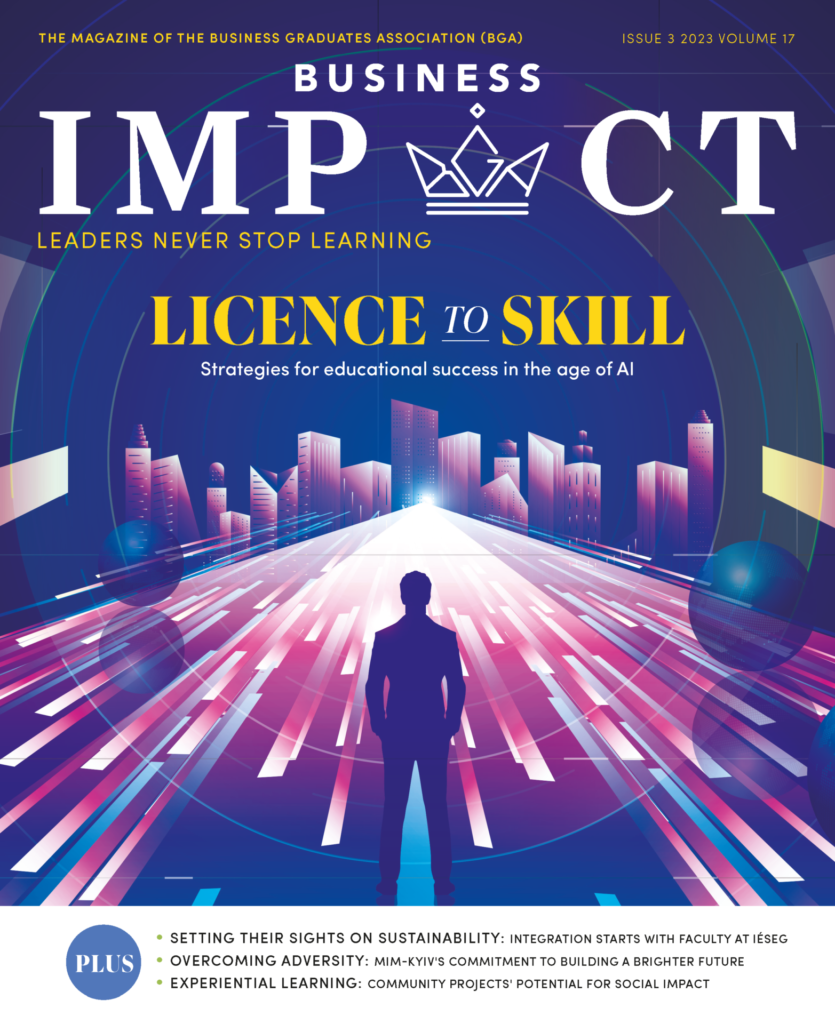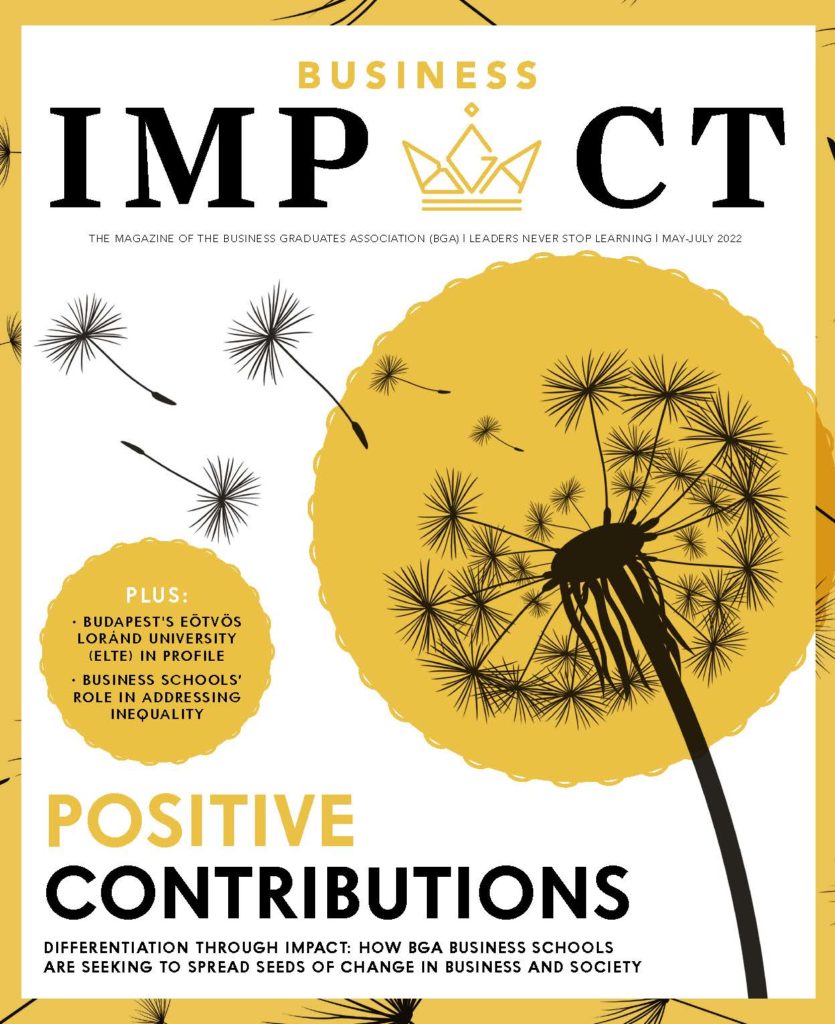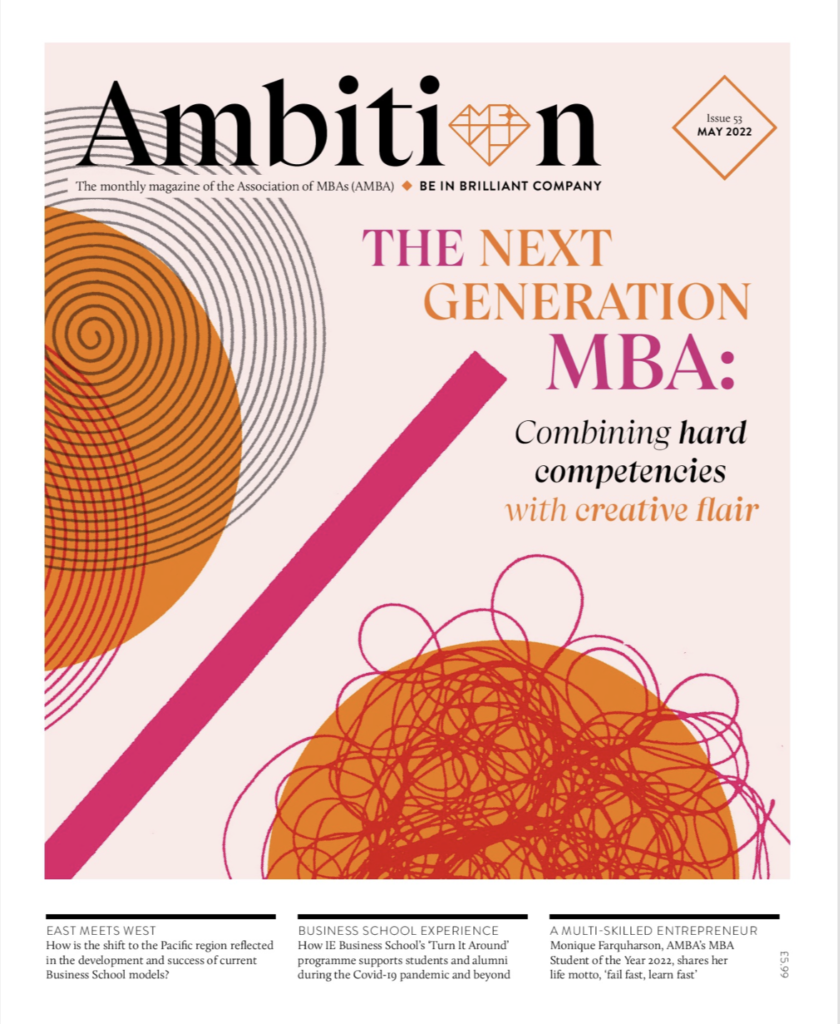Introduction by Bodo B Schlegelmilch, Chair of AMBA & BGA, and Alexander G Welzl, President of the China Data Analysis and Research Hub.
Educating the next generation of leaders is a difficult task, and Business Schools around the world carry a substantial part of the responsibility for getting this task right. However, deciding on the right way to educate 21st-century leaders is riddled with uncertainties.
The Covid-19 pandemic accelerated the digital transformation. For Business Schools, it has opened new and exciting avenues for remote teaching, but also raised uncertainties by calling into question how we teach and what we teach. The digital transformation has also changed the competitive environment for Business Schools, as future leaders can tap into digital educational offers from suppliers around the world. For students, this means more choice; for Business Schools, it means more competition.
More important than the way of delivering knowledge and skills is what we teach. Content is king, but do we know what future leaders need? What type of knowledge and skills will be critical in solving future societal and business challenges?
There are new types of jobs on the horizon, but we may also need fundamental changes, affecting the responsibilities and purpose of companies in society. Climate change illustrates the need to move towards sustainable circular business models.
In light of the profound transformations and grand challenges of world societies and economies – namely anthropogenic climate change, digital transformation, demographic changes, urbanisation, and resource depletion – the skills to be achieved by corporate managers are far from being focused solely on economics.
This is especially true for CEOs, members of boards and middle-management in multinational firms in manufacturing, the service sector, financial industry, and many other fields of private and public enterprises.
The pandemic is just a prelude, and kind of global stress test for governance systems, societal concepts, economies, and people at the dawn of the worldwide impacts of climate change in the coming decades.
Against this backdrop, mutual learning is needed. In the end, coming up with novel sustainable lifestyles, governance systems and economic performance cycles is a question of survival for the generations to come.
Managerial capabilities are at the heart of this challenge. Therefore, the question of how Business Schools address their educational responsibility in their curricula, philosophies and core values is of utmost importance.
Undoubtedly a new balance between competition and co-operation, as well as a sense of the delicate line between legality and legitimacy, is necessary for the coming generations of corporate managers.
Do western and the Chinese cultures influence education at Business Schools and management styles in different ways? How is the shift to the Pacific region reflected in the development and success of current Business School models? Can we expect a growing importance of innovation in managerial education in Europe, China, and the US in the coming times?
At any rate, evidence-based development and the innovation of Business Schools will be crucial for the emergence of a planetary patriotism in the 21st century.
Earlier this year, AMBA & BGA, in collaboration with the China Data Analysis and Research Hub (CDA), hosted a webinar bringing together experts from China, Europe and the US to share their experience, visions and ideas on educating 21st-century leaders.
Here are some highlights from our speakers.
Lars Y Terenius, European Chair, CDA Scientific Advisory Board (SAB), and Professor, Karolinska Institutet, Stockholm, Sweden
If you looked 25 years ahead in a crystal ball, I think you’d find that medicine had changed quite considerably. You would have new information due to machine learning, doctors would look at patients’ symptoms remotely, and there would be new ways to register and tools that people could use at home. I think we will see a revolution in medicine, while another lesson we will learn is the need to think globally. We need to introduce these technologies and work out how to help people in less-privileged countries.
Hong Yongmiao, Dean and Professor, University of the Chinese Academy of Sciences School of Economics and Management, Beijing, PR China
Our future leaders and talent need to understand how the digital economy drives changes in the economy and wider society. We need to understand how to maintain steady economic growth in China, while improving income inequality and solving other social problems.
We also need to learn to compete and co-operate while enhancing a harmonious international community. We would like to have our Chinese students know how artificial intelligence (AI) impacts economy, business, and society, while having an international vision; knowing how to communicate with people from different cultural backgrounds and knowing how to solve conflicts in a way that benefits all parties involved.
Pamela Mar, Executive Vice President, Fung Academy, Fung Group, Hong Kong, PR China
The future of the supply chain is going to be digital, and data driven. You will be able to run it from your dashboard. It’s going to be sustainable and certified. It’s going to be geographically agile and fully traceable from end to end. This is very different from cheap and cheerful, which is what the supply chain used to be.
Gao Xudong, Professor, Tsinghua University School of Economics and Management, Beijing, PR China
We believe in the importance of innovation – we are always improving our capabilities so we seize future opportunities and deal with the challenges.
Wu Xiaobo, Dean and Professor, Zhejiang University Faculty of Social Sciences, Hangzhou, PR China
In China, with the sharing of knowledge and interaction between academia and enterprises, with greater co-operation, we could see China enter the fourth industrial revolution. From catching up, China could move ahead. We will see the restructuring of ecosystems, and very close relationships and interactions between industries and universities.
Wang Zhongming, Professor, Zhejiang University, and President, Silk-Road Entrepreneurship Education Network, Hangzhou, PR China
In China, we try to do three things among the Business Schools in terms of capacity building. First, it’s about bridging the psychological distance to set up sustainability mindsets and building that into MBA programmes. Second, we try to integrate digital transformation with green development. Third, we empower corporate leaders with sustainable management.
Gunther Friedl, Professor, Technical University of Munich (TUM), and Dean, TUM School of Management, Munich, Germany
We need to shift our educational programme. We take an interdisciplinary approach where we bring together business students with science students, with engineering students – and have them collaborate in interdisciplinary teams to get a better understanding of what is going on in their respective areas.
Amitava Chattopadhyay, Professor at INSEAD, Fontainebleau, France
For us, lifelong learning has become a watch word and it’s something that now cuts across degree programmes and executive education programmes.
We are evolving to say that it is no longer the case that you study for the first 20-odd years of life and then live off that for the rest of your career. Rather, you constantly refresh your life as the world changes.
I think that virtual reality offers a real opportunity to present stories and let students understand them. I think that is a super important learning experience for students.
Josep Franch, Professor and Dean, ESADE Business School, Barcelona, Spain
[In the past] our obligation as Business Schools was not only to play a key role [in globalisation] but to provide education with a global perspective, involve faculty in global issues and to share best practice and experience through international partnerships.
Our students have developed a different set of competencies – more resilience, more crisis management, more living with a distributed team of people. We’ve learned what VUCA really means.
Scott Stern, Professor, MIT Sloan School of Management, Boston, USA
I take a global approach to management education, to make sure that the lessons we are teaching students in one location are adaptable and have a broad framework that can apply across many regions. We need to make sure that we’re not putting a square peg in a round hole by misapplying what might be true in one location to another around the globe.
Srilata Zaheer, Dean and Professor, Carlson School of Management, University of Minnesota, USA
We have a range of partnerships, and each one of them has been hugely beneficial in terms of being able to bring views from around the world into our own classrooms for our own students.
These partnerships have exposed our own American students to what happens around the world and what happens in China – to the best thinking and the best students out there. That has been an absolute joy.
It has changed how our faculty think and what they teach, it changed what they do.
Bodo B Schlegelmilch, Chair of AMBA & BGA
VUCA has become the norm – the traditional Business School model is undergoing changes. It is very important to come together and focus on ideas we have in common and exchange ideas, so it is a great pleasure to bring together Chinese and western perspectives, because knowledge is much more evenly distributed than ever before.
We have to think about whom we should collaborate and compete with, to the extent that we have to question our own business models. In terms of changing technology, Business Schools, and deans in particular, are taxed with very new decisions, as regards which technologies to invest in.
- What do we outsource or invest in ourselves?
- What are the teaching tools?
- What about the personalisation we offer?
- These are all challenges deans did not have before.
Alexander G Welzl, President of CDA
As an independent, non-partisan senior European think tank, we are convinced that the education of the coming generation of managers and corporate leaders is decisive for tackling the challenges lying ahead of us.
We deeply believe that evidence-based decision-making, and a systemic and systematic learning process between cultures and nations, are the basis for peace, prosperity, and collaboration in the 21st century.
We at CDA are convinced that the future route to go is that we all try together to develop planetary patriotism and a planetary awareness, and this is especially necessary, from our point of view, for future leaders and corporate managers.






















































